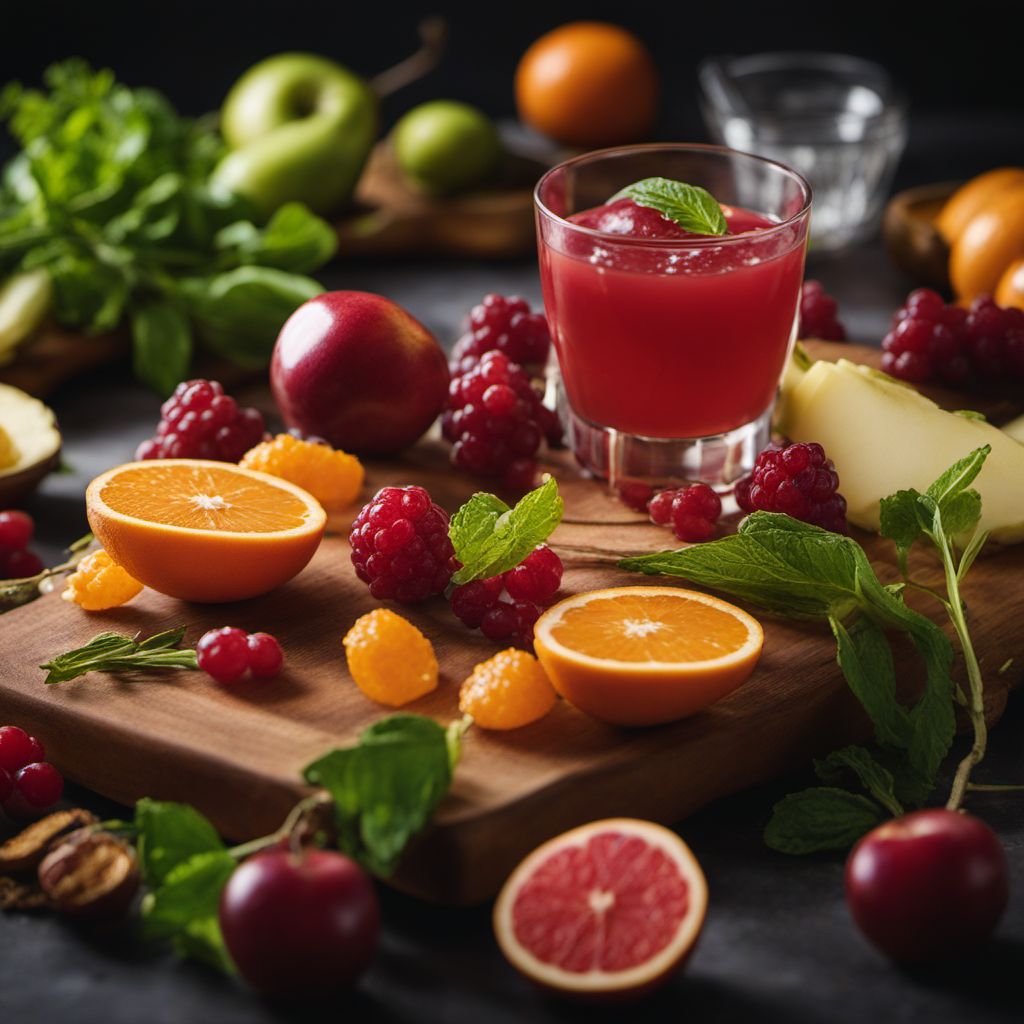
Ingredient
Fruit/vegetables/plant drinks, spreads and related products
Nature's Bounty
Fruit/vegetables/plant drinks, spreads, and related products come in various forms, including juices, smoothies, jams, jellies, and nut butters. They are made by processing fresh fruits, vegetables, or plant-based ingredients to extract their flavors and nutrients. These products are known for their vibrant colors, rich flavors, and versatility in culinary applications.
Origins and history
The concept of fruit/vegetables/plant drinks, spreads, and related products dates back to ancient times when people discovered the benefits of preserving fruits and vegetables through various methods. Over time, different cultures developed their own techniques for making juices, spreads, and other products using locally available ingredients. Today, these products are widely consumed worldwide and are an integral part of many cuisines and dietary preferences.
Nutritional information
Fruit/vegetables/plant drinks, spreads, and related products are rich in essential vitamins, minerals, and antioxidants. They provide a convenient way to consume fruits, vegetables, and plant-based ingredients, contributing to a balanced and nutritious diet. However, it is important to check the labels of these products, as some may contain added sugars or other additives.
Allergens
There may be allergens associated with specific fruit/vegetables/plant drinks, spreads, and related products, depending on the ingredients used. Common allergens include nuts, soy, and gluten. It is important to read the labels carefully and consult with a healthcare professional if you have any allergies or dietary restrictions.
How to select
When selecting fruit/vegetables/plant drinks, spreads, and related products, read the labels to ensure they are made from high-quality ingredients without added sugars or artificial additives. Look for products that are made from organic or locally sourced ingredients for a more sustainable and flavorful option.
Storage recommendations
To maintain the freshness and quality of fruit/vegetables/plant drinks, spreads, and related products, follow the storage instructions provided on the packaging. Most products should be stored in a cool, dry place away from direct sunlight. Once opened, refrigerate the products and consume them within the recommended timeframe to ensure optimal taste and quality.
How to produce
Amateurs can produce fruit/vegetables/plant drinks, spreads, and related products by using fresh fruits, vegetables, or plant-based ingredients and processing them using a blender, juicer, or food processor. There are numerous recipes and resources available online to guide individuals in making their own homemade versions of these products.
Preparation tips
Fruit/vegetables/plant drinks, spreads, and related products can be used in a variety of culinary applications. They can be enjoyed on their own as refreshing beverages, spread on toast or crackers, used as a topping for desserts, or incorporated into recipes to add flavor and moisture. These products are versatile and can be customized to suit individual preferences and dietary needs.
Availability
Fruit/vegetables/plant drinks, spreads, and related products are commonly available in supermarkets, grocery stores, and health food stores worldwide. They are also available online, making it convenient for individuals to access a wide range of options.
More ingredients from this category

Fruit / vegetable spreads and similar
Nature's Sweet and Savory Delights: Exploring Fruit and Vegetable Spreads

Liquid or gel separated from plant RPCs
The Essence of Plant RPCs

Fruit / vegetable juices and nectars
Liquid Gold: The Essence of Nature's Bounty

Extracts of plant origin
Nature's Essence

Fruit/vegetable juice powder
The Essence of Nature in Powdered Form: Exploring Fruit/Vegetable Juice Powder

Fruit/vegetable juice concentrate
The Essence of Nature's Sweetness: Unlocking the Power of Fruit and Vegetable Juice Concentrate